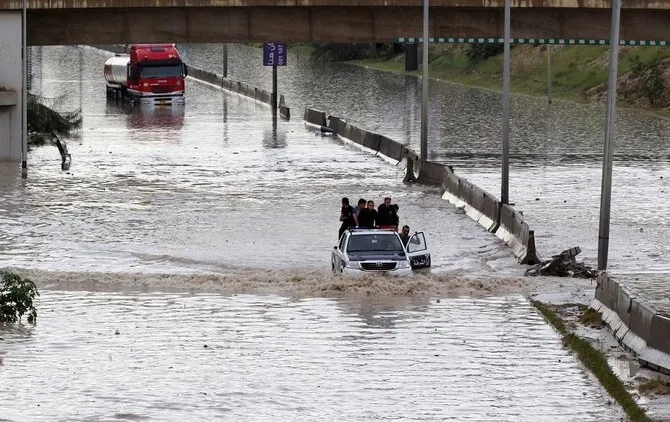In the wake of devastating floods last weekend, an official in eastern Libya has dismissed allegations that a significant portion of the victims were given advice to stay put in their homes.
According to Othman Abdul Jalil, who serves as the spokesperson for the government in Benghazi, soldiers gave a warning to the people of Derna, prompting them to leave the city, as reported by the BBC.
He rejected allegations of people being discouraged from evacuating, though he acknowledged that a few might have interpreted the threat as exaggerated.
Meanwhile, according to BBC teams in Derna, aid organizations have not yet reached the city.
While reporters observed a flurry of activity in the heart of Derna, including rescue teams, ambulance crews, and forensic experts working to identify the deceased, there was limited evidence of prominent international aid organizations.
A representative from a particular organization described the effort to coordinate aid operations in the country as “a nightmare”.
Read also: Libya Flood Death Toll Soars To 11,000, 20,000 Still Missing
‘Libya one week ago was already complicated,’ said Tomasso Della Longa from the International Federation of Red Cross and Red Crescent Societies (IFRC).
Further complicating matters is the fact that vital infrastructure, such as roads and telecommunications systems, has been ravaged by the floods.
The death toll estimates provided fluctuate between about 6,000 and 11,000, and as countless more remain unaccounted for, Derna’s mayor has raised concerns that the eventual tally could exceed 20,000.
Information relayed to the newsmen suggests that the bodies of several victims have been located more than 100 kilometers (60 miles) from Derna, having been swept out to sea by the floods and subsequently washed ashore.
Jens Laerke, representing the United Nations’ humanitarian office, relayed to the newsmen that there are both survivors and deceased individuals trapped beneath the wreckage, and it will be some time before the true extent of casualties is known.
‘We are trying to not to have a second disaster there. It is critical to prevent a health crisis, to provide shelter, clean water and food,’ he said.
The United Nations has reported that more than 1,000 individuals have been interred in mass graves.
The World Health Organization (WHO) has requested that disaster relief teams discontinue this practice, emphasising that quick mass burials may cause enduring emotional trauma for grieving family members.
The rupture of two dams in the aftermath of Storm Daniel on Sunday resulted in the loss of thousands of lives, as entire neighborhoods were swept into the Mediterranean Sea.
Survivors have shared chilling accounts of their daring escapes and the heart-wrenching sight of people being carried away right in front of them.
The recovery efforts are reportedly being hampered by the fragmented political climate in the country. Libya remains divided between two opposing governments, one backed by the UN and situated in Tripoli, while the other, supported by Egypt, has its base in Benghazi.

